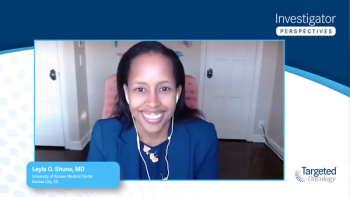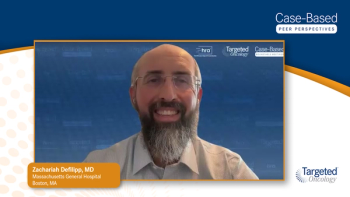
Treatment Goals in Newly Diagnosed Lower-Risk MDS: Key Clinical and Genetic Factors
A panelist discusses the evolving role of luspatercept in low-risk myelodysplastic syndrome, highlighting its broad efficacy beyond SF3B1 mutations, its advantage in reducing transfusions and improving quality of life, and the shift toward treatment decisions based on clinical presentation and lifestyle factors rather than genetic profiles alone.
In low-risk myelodysplastic syndrome (MDS), the clinical objective is to alleviate symptoms, enhance quality of life, and correct cytopenias—particularly anemia—to reduce transfusion dependence. Minimizing transfusions is critical not only to avoid complications like iron overload but also to improve long-term outcomes. Despite their disease being classified as low risk, many patients live for years after diagnosis, with overall survival ranging from 5 to 10 years. Therefore, therapies that can delay progression to higher-risk disease and potentially extend survival would be highly valuable if supported by evidence.
Luspatercept has emerged as a promising option in this setting, especially following data from the COMMANDS trial. Initially thought to be effective primarily in patients with SF3B1 mutations, newer findings indicate that its benefit extends across genetic profiles and is not limited to patients with ring sideroblasts. Given the complexity of mutational landscapes in MDS—where multiple mutations often coexist—the presence or absence of SF3B1 alone is no longer viewed as a key determinant in selecting luspatercept over erythropoiesis-stimulating agents (ESAs).
Current clinical decision-making therefore places more emphasis on the overall benefit-risk profile of luspatercept. Its ability to improve hemoglobin levels and reduce transfusions without frequent dosing makes it attractive, particularly for patients with active lifestyles. In this context, mutation profiling plays a limited role, and the decision to use luspatercept is increasingly driven by clinical presentation and practical considerations, rather than specific genetic markers.



















